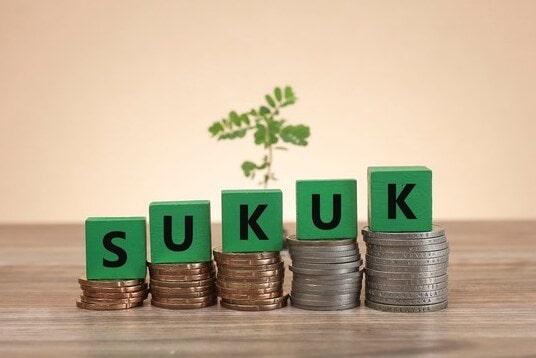According to S&P Global Ratings, the growth of the Islamic finance market will be supported by the Saudi banking system.
The Islamic finance market is expected to experience growth in the next two years, largely driven by Saudi Arabia’s robust banking system, according to a report by S&P Global Ratings. The report predicts a growth of around 10% across the industry in 2023-2024 after similar expansion last year, with Saudi Arabia and Kuwait mainly fuelling the growth. S&P Global Ratings also believes that new supplies of sukuk, the Islamic financial instrument, will exceed those that are set to mature, despite a predicted economic slowdown and a decline in sukuk issuance this year.
While the report acknowledges that Islamic finance is not a truly globalized sector, it highlights ways to enhance its competitiveness and increase its appeal. In addition, the report identifies Egypt and Turkey as countries most likely to seek funding through sukuk. Egypt has already established a $5 billion sukuk program and issued its first sukuk early in 2023, which attracted significant investor interest, with more than $6 billion in demand and a 59% allocation to investors from the Middle East and North Africa. The profit rate of the three-year sukuk was set at 10.875%, which was broadly in line with the yield on Egypt’s conventional bond with a similar maturity date of 2026.
The report states that Islamic finance is still a collection of local industries rather than a truly global sector. It argues that the growth of Islamic finance in the Gulf Cooperation Council (GCC) countries is dependent on the performance of Saudi Arabia’s banking system. The report forecasts a material slowdown in GCC economies’ real gross domestic product (GDP) growth in 2023-2024 compared to 2022, largely based on lower oil production. However, it notes that Saudi Arabia’s banking system performance will continue to underpin a large portion of the expanding Islamic finance industry. In other GCC countries, the report predicts a growth of around 5% in the absence of new major government investment cycles.
The report echoes findings by Fitch Ratings, which released a report in April, stating that the global sukuk issuance for the second quarter of 2023 is building up, even as it faces short-term uncertainties amid continued macro-volatilities. While the report acknowledges the decline in sukuk issuance this year, it suggests that the volume of new issuances will continue to exceed maturing sukuk. Overall, the report concludes that the growth of Islamic finance will be supported by Saudi Arabia’s banking system and that the industry is expected to experience growth in the next two years.
The S&P Global Ratings report also highlights the potential of green and sustainable sukuk to drive growth in the Islamic finance market. The report noted that global green, social, and sustainability bond issuance reached a record high of $298 billion in 2021, with sukuk representing around 13 percent of the total. This growth is expected to continue, with issuers increasingly interested in tapping into the green and sustainable market to fund environmentally-friendly projects.
Sukuk issuance in Saudi Arabia reached SAR 54.4 billion ($14.5 billion) in 2021, up from SAR 47.5 billion ($12.7 billion) in 2020, according to data from the Saudi Stock Exchange (Tadawul). This growth in sukuk issuance is expected to continue in 2023, as the country plans to increase its debt ceiling and borrow more to fund its infrastructure projects.
The report also emphasized the importance of regulatory frameworks in driving growth in the Islamic finance industry. S&P Global Ratings believes that improving regulatory frameworks will help to attract more investors to the market and support the industry’s long-term growth.
The Saudi Arabian Monetary Authority (SAMA) has been actively working on regulatory reforms to support the development of the Islamic finance market in the country. In March 2023, SAMA launched a new regulatory framework for the issuance of Islamic bonds, aimed at enhancing transparency, promoting good governance, and protecting the rights of investors.





